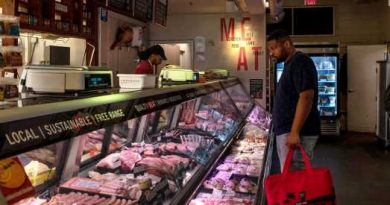Covid 19 Delta outbreak: SMEs concerned about supply chain disruptions leading into Christmas rush
After months in lockdown Auckland retailers will finally open up for business today but they remain concerned about a fractured global supply chain right before the busy Christmas and New Year rush, a new survey reveals.
The research, from small business accounting firm MYOB focuses on data collected from 500 local SME decision-makers. It found out 77 per cent of SMEs were concerned about wider disruptions from the pandemic affecting their supply chain over summer.
MYOB’s holiday trading snapshot reported more than 80 per cent of SMEs are concerned about the impact of the Covid-19 Delta outbreak on their business over the holiday period, with 37 per cent of them being extremely concerned.
As a result, over half (55 per cent) of the SMEs surveyed said they had made changes to their business this year to prepare and manage the impact of any Covid-19 disruptions during summer. Of this group, 10 per cent said they have had to completely readapt or reposition their business.
MYOB head of customer services Jo Tozer said while it is the second Covid-19 Christmas, businesses will have to be more flexible and adaptable to the swiftly changing environment.
“For this holiday trading period, New Zealand businesses will have to contend with the Delta variant continuing to spread, a change from the current alert levels to a new traffic light system, the potential introduction of vaccine passports, as well as some vaccine mandates for frontline staff, and a global supply chain that is looking increasingly fractured.
“With timing still uncertain around many of these factors, all of this makes for an extremely uncertain picture, as many businesses work hard to prepare for what is traditionally a vital trading time for many SMEs,” Tozer said.
Summer revenue predictions
The holiday trading snapshot showed on average, SMEs made around 20 per cent of their annual income from the Christmas/New Year period, with more than a third (37 per cent) saying the summer months were extremely important to their business.
Nearly half of the SMEs surveyed expect their revenue to be about the same as last year for Christmas and New Year, however, 28 per cent are forecasting their revenue will be down on the 2020/21 period – including 35 per cent of SMEs based in the Auckland region.
In contrast, just 14 per cent of New Zealand’s SMEs expect their revenue to be up last year.
SMEs adapting to risk
In response to the concerns they’re facing, those 55 per cent of SMEs making changes to their business are adopting a range of strategies designed to minimise disruption, reduce costs or manage risk.
About 41 per cent of the respondents to the survey said they had ordered stock early than the pre-Covid years, 36 per cent of have requested their staff to be vaccinated, 21 per cent have limited the amount of products they stock to ensure most stock can be sold.
But only 19 per cent have planned to extend their business hours which is a five per cent drop compared with October 2020. And 18 per cent of the croup will be closed during the Christmas period, a three per cent increase since October 2020.
Tozer said in the last year’s holiday trading snapshot, 32 per cent of SMEs said they were ordering stock early to avoid delays – almost 10 per cent less than this year, with more SMEs now taking action against these concerns.
“The number of SMEs revising business plans to prepare for a change in alert levels has also increased on last year, with 32 per cent taking this action in 2020 (compared with 37 per cent in 2021),” she said.
Buy local for Christmas
The MYOB survey also asked business owners and operators to identify the one thing they would ask of consumers over the holiday trading period.
More than half or 51 per cent of SMEs said they would ask consumers to get vaccinated, a 25 per cent said shop local and buy New Zealand made and – in line with cash flow concerns – 11 per cent said their one ask would be to pay invoices to small businesses on time.
“From shopping for New Zealand-made products to visiting local hospitality businesses, trying out local tourist activities, shopping at local online stores or simply recommending their products or services to friends and family. We can make their Christmas a bright spot in another tough year, if we just give them our support,” Tozer said.
Source: Read Full Article



